Related Research Articles
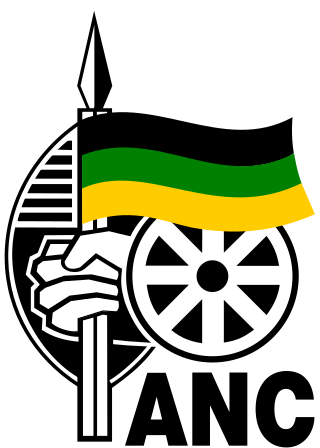
The African National Congress (ANC) is a political party in South Africa. It originated as a liberation movement known for its opposition to apartheid and has governed the country since 1994, when the first post-apartheid election resulted in Nelson Mandela being elected as President of South Africa. Cyril Ramaphosa, the incumbent national President, has served as President of the ANC since 18 December 2017.

The South African Communist Party (SACP) is a communist party in South Africa. It was founded in 12 February 1921 as the Communist Party of South Africa (CPSA), tactically dissolved itself in 1950 in the face of being declared illegal by the governing National Party under the Suppression of Communism Act, 1950. The Communist Party was reconstituted underground and re-launched as the SACP in 1953, participating in the struggle to end the apartheid system. It is a member of the ruling Tripartite Alliance alongside the African National Congress and the Congress of South African Trade Unions (COSATU) and through this it influences the South African government. The party's Central Committee is the party's highest decision-making structure.
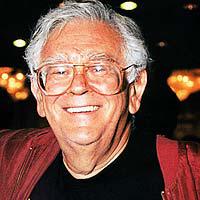
Yossel Mashel Slovo, commonly known as Joe Slovo, was a South African politician, and an opponent of the apartheid system. A Marxist-Leninist, he was a long-time leader and theorist in the South African Communist Party (SACP), a leading member of the African National Congress (ANC), and a commander of the ANC's military wing uMkhonto we Sizwe (MK). Slovo was a delegate to the multiracial Congress of the People of June 1955 which drew up the Freedom Charter. He was imprisoned for six months in 1960, and emerged as a leader of uMkhonto we Sizwe the following year. He lived in exile from 1963 to 1990, conducting operations against the apartheid régime from the United Kingdom, Angola, Mozambique, and Zambia. In 1990, he returned to South Africa, and took part in the negotiations that ended apartheid. He became known for proposing the "sunset clauses" covering the 5 years following a democratic election, including guarantees and concessions to all sides, and his fierce non-racialist stance. After the elections of 1994, he became Minister for Housing in Nelson Mandela's government. He died of cancer in 1995.

The Freedom Charter was the statement of core principles of the South African Congress Alliance, which consisted of the African National Congress (ANC) and its allies: the South African Indian Congress, the South African Congress of Democrats and the Coloured People's Congress. It is characterised by its opening demand, "The People Shall Govern!"

Ernest Urban Trevor Huddleston was an English Anglican bishop. He was the Bishop of Stepney in London before becoming the second Archbishop of the Church of the Province of the Indian Ocean. He was best known for his anti-apartheid activism and his book Naught for Your Comfort.
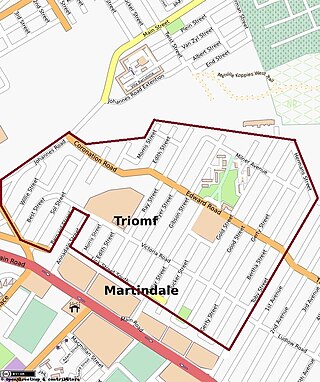
Sophiatown, also known as Sof'town or Kofifi, is a suburb of Johannesburg, South Africa. Sophiatown was a poor multi-racial area and a black cultural hub that was destroyed under apartheid. It produced some of South Africa's most famous writers, musicians, politicians and artists, like Father Huddleston, Can Themba, Bloke Modisane, Es'kia Mphahlele, Arthur Maimane, Todd Matshikiza, Nat Nakasa, Casey Motsisi, Dugmore Boetie, and Lewis Nkosi.

The Treason Trial was a trial in Johannesburg in which 156 people, including Nelson Mandela, were arrested in a raid and accused of treason in South Africa in 1956.

Kliptown is a suburb of the formerly black township of Soweto in Gauteng, South Africa, located about 17 km south-west of Johannesburg. Kliptown is the oldest residential district of Soweto, and was first laid out in 1891 on land which formed part of Klipspruit farm. The farm was named after the klipspruit that runs nearby. From 1903 the area was home to informal settlements, and the area now contains a mixture of purpose-built housing and many shacks and other informal homes which form the Chris Hani and Dlamini settlements.
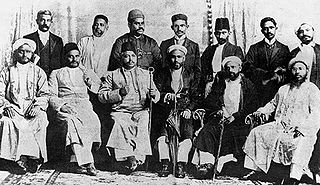
The Natal Indian Congress (NIC) was a political organisation established in 1894 to fight discrimination against Indians in the Natal Colony, and later the Natal Province, of South Africa. Founded by Mahatma Gandhi, it later served an important role in opposing apartheid. It was the oldest affiliate of the South African Indian Congress.
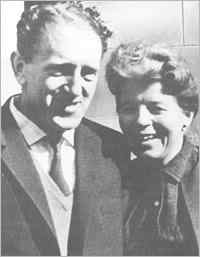
Lionel "Rusty" Bernstein was a Jewish South African anti-apartheid activist and political prisoner. He played a key role in political organizations such as the South African Communist Party (SACP) and the African National Congress (ANC). He helped form the South African Congress of Democrats to bolster white participation in the ANC, and he brought its allies together to establish a Congress of the People, working closely with Nelson Mandela.

The apartheid system in South Africa was ended through a series of bilateral and multi-party negotiations between 1990 and 1993. The negotiations culminated in the passage of a new interim Constitution in 1993, a precursor to the Constitution of 1996; and in South Africa's first non-racial elections in 1994, won by the African National Congress (ANC) liberation movement.

Thomas Titus Nkobi was a senior leader of the South African African National Congress (ANC) and a key figure in the Anti-Apartheid movement. Until his death he was the Treasurer General of the ANC and also its Member of Parliament.

Internal resistance to apartheid in South Africa originated from several independent sectors of South African society and took forms ranging from social movements and passive resistance to guerrilla warfare. Mass action against the ruling National Party (NP) government, coupled with South Africa's growing international isolation and economic sanctions, were instrumental in leading to negotiations to end apartheid, which began formally in 1990 and ended with South Africa's first multiracial elections under a universal franchise in 1994.

The African National Congress (ANC) has been the governing party of the Republic of South Africa since 1994. The ANC was founded on 8 January 1912 in Bloemfontein and is the oldest liberation movement in Africa.

The Congress Alliance was an anti-apartheid political coalition formed in South Africa in the 1950s. Led by the African National Congress, the CA was multi-racial in makeup and committed to the principle of majority rule.

Raymond Suttner is a South African activist, academic, journalist and public figure.

Walter Sisulu Square, formally known as the Walter Sisulu Square of Dedication, is located in the heart of Kliptown in Soweto, South Africa.
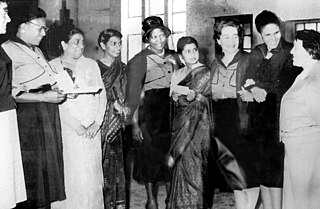
The Federation of South African Women (FEDSAW) was a political lobby group formed in 1954. At FEDSAW's inaugural conference, a Women's Charter was adopted. Its founding was spear-headed by Lillian Ngoyi.
The Institute for Democratic Alternatives in South Africa (IDASA) later known as the Institute for Democracy in South Africa was a South African-based think-tank organisation that was formed in 1986 by Frederik van Zyl Slabbert and Alex Boraine. Its initial focus from 1987 was creating an environment for white South Africans to talk to the banned liberation movement in-exile, the African National Congress (ANC) prior to its unbanning in 1990 by the President F. W. de Klerk. After the South African election in 1994, its focus was on ensuing the establishment of democratic institutions in the country, political transparency and good governance. Caught up in a funding crisis after the Great Recession, it closed in 2013.
The 48th National Conference of the African National Congress (ANC) took place from 2 to 7 July 1991 at the University of Durban–Westville in Durban, Natal. It was the first national conference of the ANC since the organisation was banned by the apartheid government in 1960 and marked the ascension of Nelson Mandela to the ANC presidency, which since 1967 had been held by Oliver Tambo.
References
- ↑ Goldberg, Denis (2016). A Life for Freedom. University Press of Kentucky. pp. 43–44.
- 1 2 3 4 5 "The Freedom Charter (With a Note by Hilda Bernstein)". Third World Quarterly. 9 (2): 672–677. April 1987. doi:10.1080/01436598708419993. JSTOR 3991903.
- 1 2 3 "The Freedom Charter is adopted in Kliptown: Sunday, 26 June 1955". South African History Online. 22 June 2018. Archived from the original on 14 August 2020. Retrieved 17 March 2019.
- 1 2 3 4 Suttner, Raymond (1985). "The Freedom Charter: The People's Charter in the 1980s". Crime and Social Justice (24): 72–95. JSTOR 3991903.
- 1 2 3 4 "Congress of the People Held in South Africa". Africa Today. 2 (3): 10. July 1955. JSTOR 4183718.
- 1 2 3 4 5 "The Kliptown Conference". Africa Today. 2 (4): 6. September 1955. JSTOR 4183735.
- ↑ "Significance of the Congress of the People and the Freedom Charter". South African History Online. 4 August 2016. Archived from the original on 31 July 2020. Retrieved 17 March 2019.